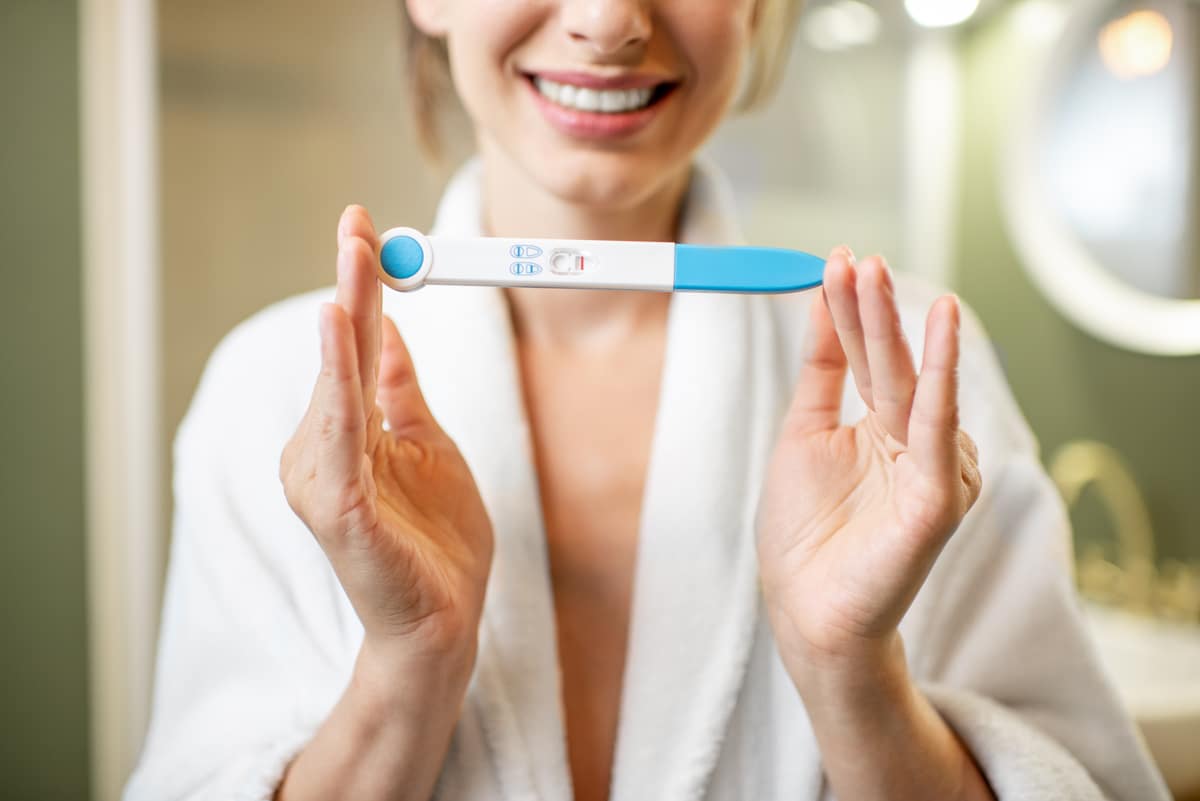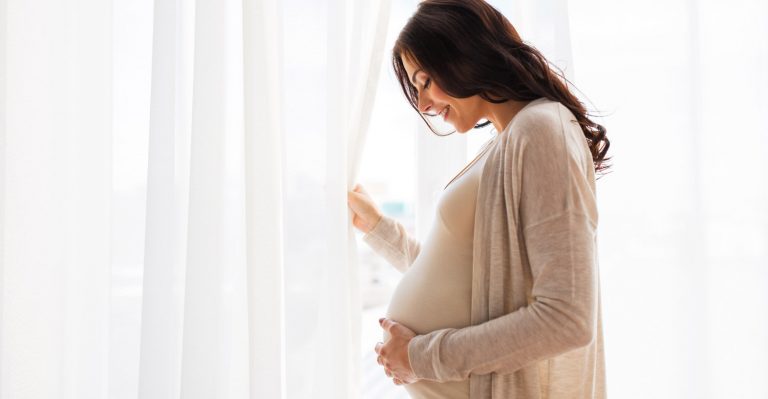The journey of discovering a possible pregnancy is often a mix of excitement, anticipation, and a touch of nervousness. As modern technology continues to evolve, so do our methods of confirming pregnancy.
One crucial aspect of this journey is determining the optimal time to take a pregnancy test. Pregnancy tests provide insight into the likelihood of a successful conception. Knowing when to take a pregnancy test is an important step in determining whether or not you are expecting a baby.
Whether you’re actively trying to conceive or are simply curious about your chances of being pregnant, this article will provide you with all the information needed to know when to take a pregnancy test. So, scroll down to know more!
In This Article
- What is the Right Time to Take a Pregnancy Test?
- When is an Early Pregnancy Test Positive?
- When to take a pregnancy test after a missed period?
- When to take a pregnancy test after ovulation?
- How Does the Pregnancy Test Calculator Work?
- How Accurate Are the Results of the Test?
- Tips to Consider While Using Pregnancy Test
What is the Right Time to Take a Pregnancy Test?
The right time to take a pregnancy test can vary depending on the individual and the specific test used. However, most sources agree that it’s best to wait until at least the first day of a missed period for the most accurate results.
Some pregnancy tests claim they can detect pregnancy hormones in urine as early as 10 days after unprotected sex or 6 days before the expected period, but these results aren’t always reliable.
If you’re unsure when your next period is due, it’s recommended to wait at least 21 days after unprotected sex before taking a test. For those tracking ovulation, a test can be taken approximately 14 days after documented ovulation for reliable results. Here are some general guidelines to follow:
- Morning Urine: Many tests claim to be more accurate if taken with the first urine of the day, which is when hormone levels are highest.
- Time of Day: It’s best to take the test in the morning for optimal accuracy.
- Frequency: Only take one test at a time to avoid confusion. If the results are confusing, wait a few days and try again.
To get the most reliable results possible, make sure you use a test that has been cleared by the FDA and follow all instructions carefully. If you have a positive pregnancy test, be sure to contact your healthcare provider for advice.
When is an Early Pregnancy Test Positive?
An early pregnancy test can become positive as soon as 7-10 days after conception, but it’s important to note that the timing can vary based on individual factors. Here are some key points to consider:
- HCG Levels: HCG, or human chorionic gonadotropin, is a hormone that is released during pregnancy. Your levels of HCG increase over time as your baby develops, so early tests may not be able to detect them until they reach higher levels.
- Lifestyle Choices: Certain lifestyle choices can affect your HCG levels and the accuracy of early pregnancy tests. For example, smoking and alcohol consumption can impact the accuracy of early tests.
- Implantation: The timing of your test is also related to when implantation occurs- this usually takes place 6-12 days after ovulation.
- False Negatives: Some pregnancy tests may give a negative result even if you are pregnant- this is known as a false negative. To reduce the likelihood of this happening, it’s important to wait until you are well past your expected due date before taking a test.
However, if you experience early pregnancy symptoms, such as nausea or fatigue, it may be beneficial to take a test earlier. As such, a pregnancy due date calculator can be used to help you determine when the optimal time is for you to take a test.
When to take a pregnancy test after a missed period?
According to the American Pregnancy Association, it’s best to take a standard pregnancy test starting from the first day of your missed period. Many home pregnancy tests claim they can detect a pregnancy up to 5 days before your period is due, but most experts recommend waiting until you’ve missed your period before taking the test.
Furthermore, some at-home urine test may not be able to detect a pregnancy until two weeks after the missed period. This is because it takes some time for your body to produce enough of the hormone human chorionic gonadotropin (hCG) that will show up on a test.
If your results are negative, but you still think you may be pregnant, it’s best to repeat the test in a few days or one week after your missed period. If the second results are also negative and you have not had your period, it’s recommended that you contact your healthcare provider for further testing.
When to take a pregnancy test after ovulation?
Although some home pregnancy tests are designed to be sensitive enough to detect pregnancy hormones (hCG) as early as 6 days before a missed period. This corresponds to around 8-9 days past ovulation for those with a typical 28-day menstrual cycle.
However, it’s important to note that the accuracy of these early tests can vary. While some tests might be able to provide accurate results at this early stage, others might still yield false negatives due to lower hCG levels. If you do decide to test this early and receive a negative result, it’s a good idea to retest closer to your expected period date to increase the likelihood of getting an accurate result.
As always, the timing of testing and the accuracy of results can be influenced by individual factors, so it’s important to consider your own situation and the instructions provided with the specific pregnancy test you are using.
How Does the Pregnancy Test Calculator Work?
Though early pregnancy tests can detect hCG levels in the body, these levels vary from woman to woman. The pregnancy test calculator takes into account both your last menstrual period and the sensitivity level of the pregnancy test itself.
Here’s how a pregnancy test calculator generally works:
- Input Information: To get an early pregnancy test positive result, input the date of your last period. This is used to calculate an estimated date when you should take a pregnancy test.
- Calculating the Estimated Due Date: The calculator uses the input information to estimate the likely conception date. It assumes that ovulation typically occurs around 14 days after the start of the menstrual cycle. Since it’s difficult to pinpoint the exact day of conception, the calculator assumes a “standard” 28-day menstrual cycle with ovulation occurring on day 14.
- Adding Pregnancy Duration: The typical human pregnancy lasts about 40 weeks (or 280 days) from the first day of the last menstrual period. The calculator adds this duration to the estimated conception date to calculate the estimated due date.
- Displaying Results: Depending on the calculator, results may be displayed in several ways. Some calculators will display the estimated due date as a calendar date (e.g., October 15). Others may give the calculated duration from the start of your last menstrual period (e.g., 40 weeks) or even offer multiple results in both formats.
How Accurate Are the Results of the Test?
When it comes to the accuracy of pregnancy tests, it is important to consider the results carefully. Since the test results are based on averages, they may not be 100% accurate. To achieve accurate results, it is important to consider factors such as:
- Type of tests used: Different types of tests, such as blood test, urine pregnancy test, or even home pregnancy tests, have different levels of accuracy. As we know to detect the pregnancy hormone hCG in the body, an early pregnancy blood test is more accurate than a urine test.
- Age: As women get older, their chances of having a healthy pregnancy decrease significantly. Therefore, it is important to consider age when testing for pregnancy.
- Time of day: Pregnancy tests are most accurate when taken in the morning, as hCG levels peak at that time. However, home urine pregnancy test results can vary depending on the time of day.
- Frequency of use: Relying too heavily on pregnancy test calculators can lead to incorrect results. It is important to take multiple tests, as this will increase the accuracy of the result.
- Diet and lifestyle: Certain medications and supplements can affect the accuracy of a pregnancy test. Eating healthy and avoiding smoking, alcohol, or drugs during this time can help ensure accurate results.
- Following instructions: It is important to follow the directions on the test carefully. This includes checking the expiration date, reading the results within the suggested time frame, and avoiding tampering with the test.
Tips to Consider While Using Pregnancy Test
Pregnancy tests are most accurate when used correctly. Here are a few tips to keep in mind while using a pregnancy test:
- Always read the instructions carefully before taking the test, as many tests require different steps for optimal accuracy.
- Choose the right timing. While some tests can detect hCG levels as early as 7 days after conception, most accurate results come 14 days after ovulation.
- Use a good-quality pregnancy test kit to get an accurate reading.
- Make sure you understand how to interpret the specific test you are using. A faint line can still indicate a positive result, so be aware of the test’s sensitivity level.
- If you test early and receive a negative result but suspect you might still be pregnant, wait a few days and retest.
- Waiting for pregnancy test results can be nerve-wracking. Try to remain patient and composed during the testing process.
- Visit a doctor if you get positive results, as they can confirm the pregnancy and provide advice on proper nutrition and lifestyle choices during this time.
- Remember that false positives can occur due to user error or medical conditions such as ectopic pregnancies, ovarian cysts, or menopause.
- If you get a negative result but are still experiencing pregnancy symptoms, it is best to speak with your doctor.
The Bottom Line
To wrap it up, utilizing a pregnancy test calculator can provide valuable guidance to individuals wondering when to take a pregnancy test. However, it’s important to remember that individual variations exist, and no calculator can replace medical advice. If there are doubts or concerns about pregnancy, consulting a healthcare professional remains the best course of action. Pregnancy test calculators can serve as useful tools in the decision-making process, but informed decisions should always be based on a combination of calculators, personal intuition, and medical guidance.
FAQs
Is 14 days good to take a pregnancy test?
Taking a pregnancy test after 14 days of potential conception is generally a good timeframe. By this point, there's a higher likelihood of accurate results. However, the exact timing can vary based on the sensitivity of the test and the individual's menstrual cycle.
Is a 2-hour urine hold pregnancy test?
A 2-hour urine hold is not necessary for a pregnancy test. Most pregnancy tests are designed to detect the pregnancy hormone hCG in the urine, and they can provide accurate results as early as the first day of a missed period. Following the test's instructions and using a morning urine sample is typically sufficient for accurate results.
3 Is a home pregnancy test Provide accurate results?
Yes, home pregnancy tests are generally accurate when used correctly. They detect the presence of the pregnancy hormone hCG in urine. However, accuracy can vary depending on factors such as the timing of the test, the sensitivity of the test, and how closely the instructions are followed.
4 What is the 2-week rule pregnancy test?
The "two-week rule" refers to the practice of waiting at least two weeks after ovulation or unprotected intercourse to take a pregnancy test. This waiting period allows sufficient time for the body to produce enough of the pregnancy hormone hCG to be detectable in the urine. Taking the test too early might lead to false-negative results due to low hormone levels.











